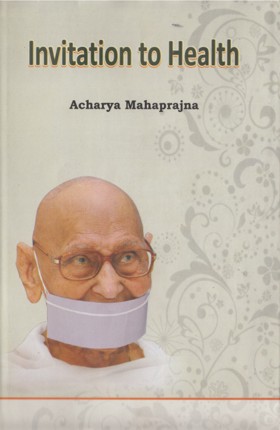Echo
Many a times the echo of eternal truth is heard in the sphere of religion. Sometime in the field of politics also it is heard. It will be relevant to cite it in the context of the talk between Mr. Mikhail Gorbachev, the President of Soviet Union and the Chinese leaders. Mr. Deng, the Chairman of Chinese Central Military Commission said - His talk with Gorbachev can be stated in eight Chinese characters. It means keep aside past matters and steer the way for the future. Both the leaders agreed to this point that - The past matters should be treated as past matters; and we should move ahead. This voice of forgetting past mistakes is the voice of religion. Udrayana captured and imprisoned Chandapradyota but he respected the religious principle of keeping aside the past matters.The prisoner was freed and they both got seated on the same throne. There is a well-known word in Jainism - khamatakhamana means -accept forgiveness and offer forgiveness. For steering the future this is an easy way. The feet tied with the chains past can never march ahead towards bright future.
Question is that of freedom
The Prime Minister of China Li Feng declared during a talk with Soviet President Gorbachev - 'Capitalist countries alone do not have monopoly on freedom, democracy and human rights. Their benefit should be taken by socialist countries as well.' Li further told Gorbachev - 'For modernization China needs stable internal situation in peaceful atmosphere.' These voices emerged from communist camp and therefore even though they are old they are new. Absence of peace, violence and terror are greatest obstacles for modernization. Only peaceful atmosphere can lead forward individual, society and nation. This is one of the truths among the truths inscribed in golden letters. The question of democracy and human rights is connected with freedom. In the Dharmasūtras (scriptural works on moral conduct) freedom was given importance because without it feeling of morality and responsibility cannot be developed.
Crowd of followers
Deng said - 'in the world scenario seasoned with science and technology there are cognitive changes taking place. In such a situation by remaining stuck to old principles only failure will be there. It is really dangerous to remain glued to those principles which have outlived their utility. In this context, this viewpoint of anekānta is very useful - Change the language of old and new, accept the language of immediate present and not so present. That which is immediate present, the relevance or utility of which is continuing, even if it is old, for us it is of immediate present. That which is not immediate present even if it is new it cannot establish its acceptance. It is a natural tendency to have attachment to past. The streak of thoughts with which a person lives, most of them are born in the past. A thought wrapped in the garment of old alone becomes attractive. New and recent thought does not get easy entry in the field of understanding. That is why the tradition of followers is continuing. Not only in the field of religion in the field of politics also all are followers. The solemn declaration of obedience to scriptures (duhāī) is made not only in the field of religion, it is used very much even in the field of politics. The present comes within the ambit of thought; the past comes under the boundary of faith. There is a large number of followers of the communist or socialist system. Those who feel proud in declaring to be follower of Gandhi are not less. Who does not feel proud in following people's democracy (lokatantra)? The whole world is filled with the followers of various religions. It is surprising - there is no crowd of followers of morality or honesty.
Question of purification of means
The movement or stir of Chinese students is a movement of search for that following. The communism which emphasized the end, is it not now on the verge of new thinking? By putting aside, the thought of purification of means by hook or crook the end is realized. What is its consequence; this can be seen in the light of the events of communist regimes. In the communist system of governance corruption cannot be imagined but it exists there. The conclusion arrived at is that it is not proper to bifurcate purity of end and means. Mahatma Gandhi gave equal emphasis on the purity of end and means, but followers are after all followers. They like to walk at the back and do not like to walk along. Followers of Gandhi are not far away from Marxism on the issue of purity of means. There might be remoteness in linguistic expression; there is no remoteness in the least in practice. Acharya Bhikshu was in the forefront in emphasizing purity of both end and means. His maxims are even today light posts. Will their ability to show path to the humanity searching a way in darkness get expression?
 Acharya Mahaprajna
Acharya Mahaprajna
